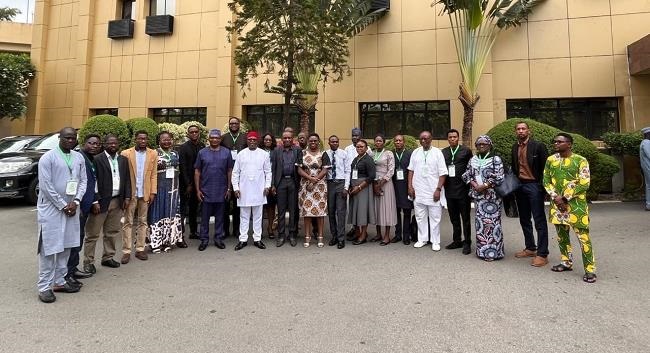Stakeholders in the environmental sector have called on the Federal Government to take urgent actions to address the challenges that are responsible for the increasing land degradation and deforestation in Nigeria.

The actors, who were drawn from the various Ministries, Departments and Agencies (MDAs), civil society groups, youths, staff of the National Assembly, the private sector, media, and international funding agencies, made the call during a stakeholders’ workshop that was organised by Global Legislators Organisation for a Balanced Environment (GLOBE) on Wednesday, July 20, 2022, in Abuja.
Welcoming participants to the daylong event, the President of GLOBE Nigeria, Sam Onuigbo, tasked the stakeholders to take the meeting seriously bearing in mind that their resolutions will be critical in addressing some significant issues bedeviling land degradation and deforestation in the country.
For him, some of the issues he wants the stakeholders to look into include food insecurity and shortages, the various conflicts across the Sahel, and ultimately position Nigeria on a path of food security while also helping in the mitigation of climate change.
“Nigeria can address the issues of food insecurity, land degradation, deforestation, and climate change mitigation through sustainable and nature-based pathways which harp on conserving Nigeria’s biodiversity,” he said.
About 670 million people globally may face hunger, while over 750 million are projected to be displaced in Africa by 2030 due to drought and loss of arable land.
The National Coordinator of GLOBE Nigeria, Nnaemeka Oruh, believes that the workshop provides the industry players the opportunity to identify pathways for the rehabilitation of degraded lands and reforestation, and also prescribe specific responsibilities accordingly.
He urged that grassroots participation must be encouraged through public education, engagement, as well as awareness creation programmes.
Furthermore, Nnaemeka is also advocating that the government should intensify efforts on wildlife management and biodiversity conservation in line with international and domestic obligations and standards to curb these problems.
“Government must create an enabling environment for communities and citizens to freely express themselves around issues on land degradation and deforestation,” he said.
And these efforts, according to him, have to focus on creating alternatives through price reduction for clean energy, effective regulation, and promotion of sanctions.
On her part, Dr. Iganya Joy, Senior Environmental Specialist, World Bank Nigeria, commended the Federal Government of Nigeria on the steps that are being taken towards addressing land degradation and deforestation issues.
According to her, the stakeholders’ workshop organised by GLOBE is an opportunity for the Federal Government and her partners to discuss the critical role of stakeholders in addressing land degradation and deforestation issues in line with the country’s commitment to restore 4 million hectares of land by 2030.
She highlighted the need for the World Bank to work jointly with GLOBE in a deliberate collaboration to address land degradation and deforestation in Nigeria as part of the World Bank’s efforts in supporting Nigeria’s commitment to achieving this ambition by 2030 as anticipated.
By Etta Michael Bisong, Abuja
